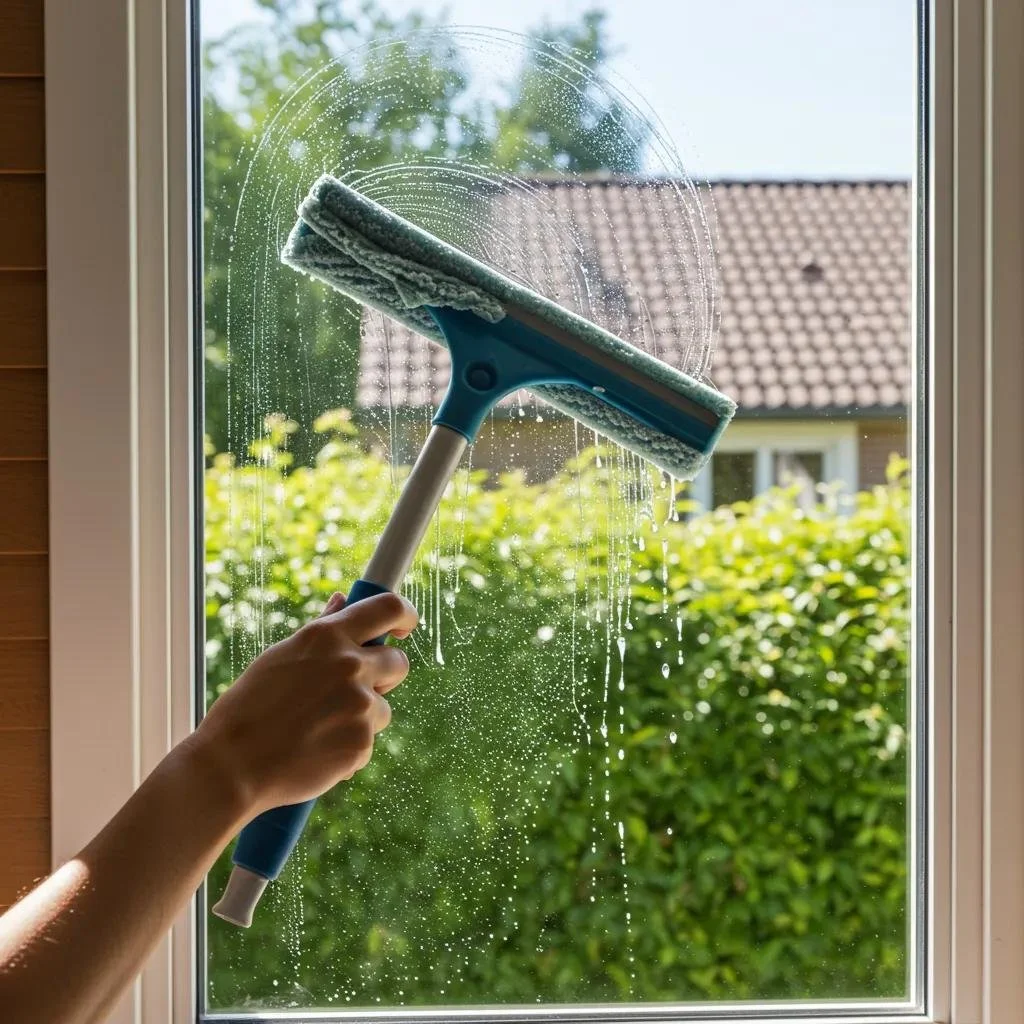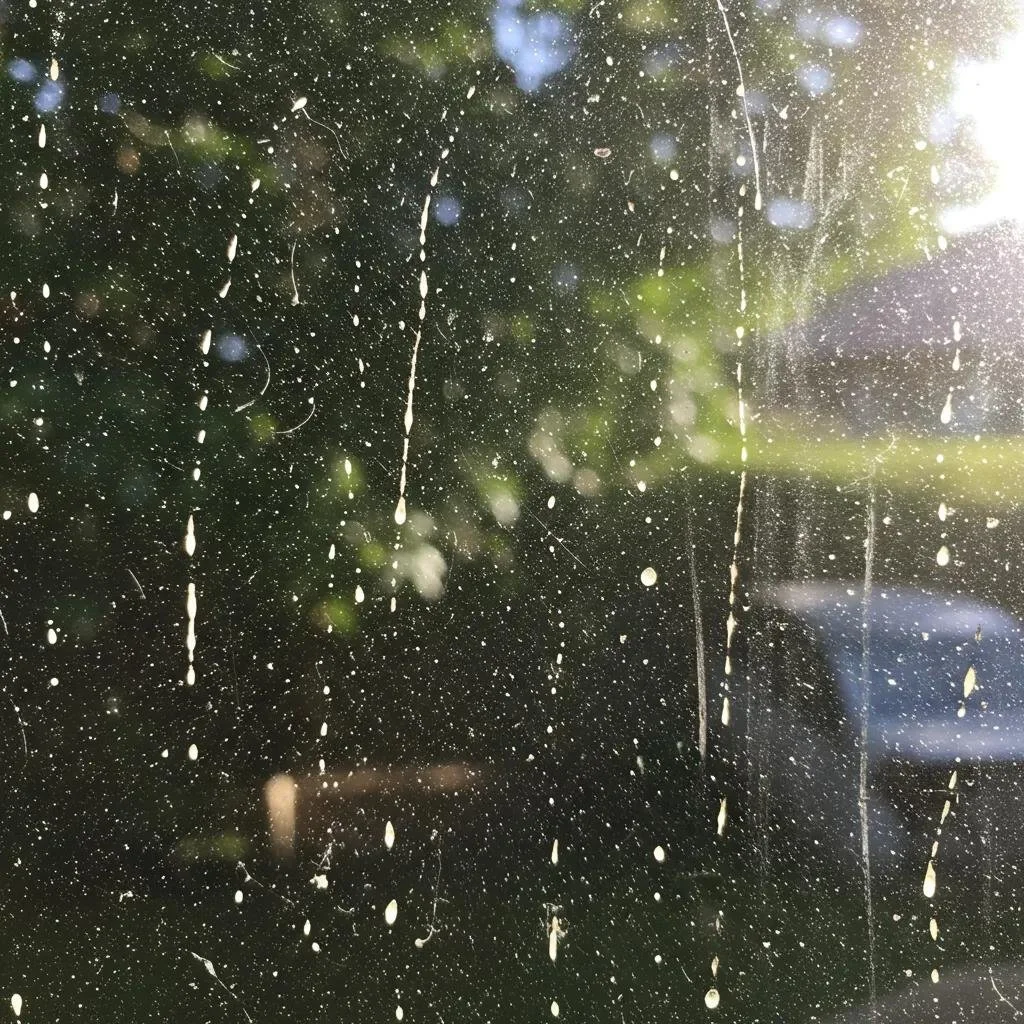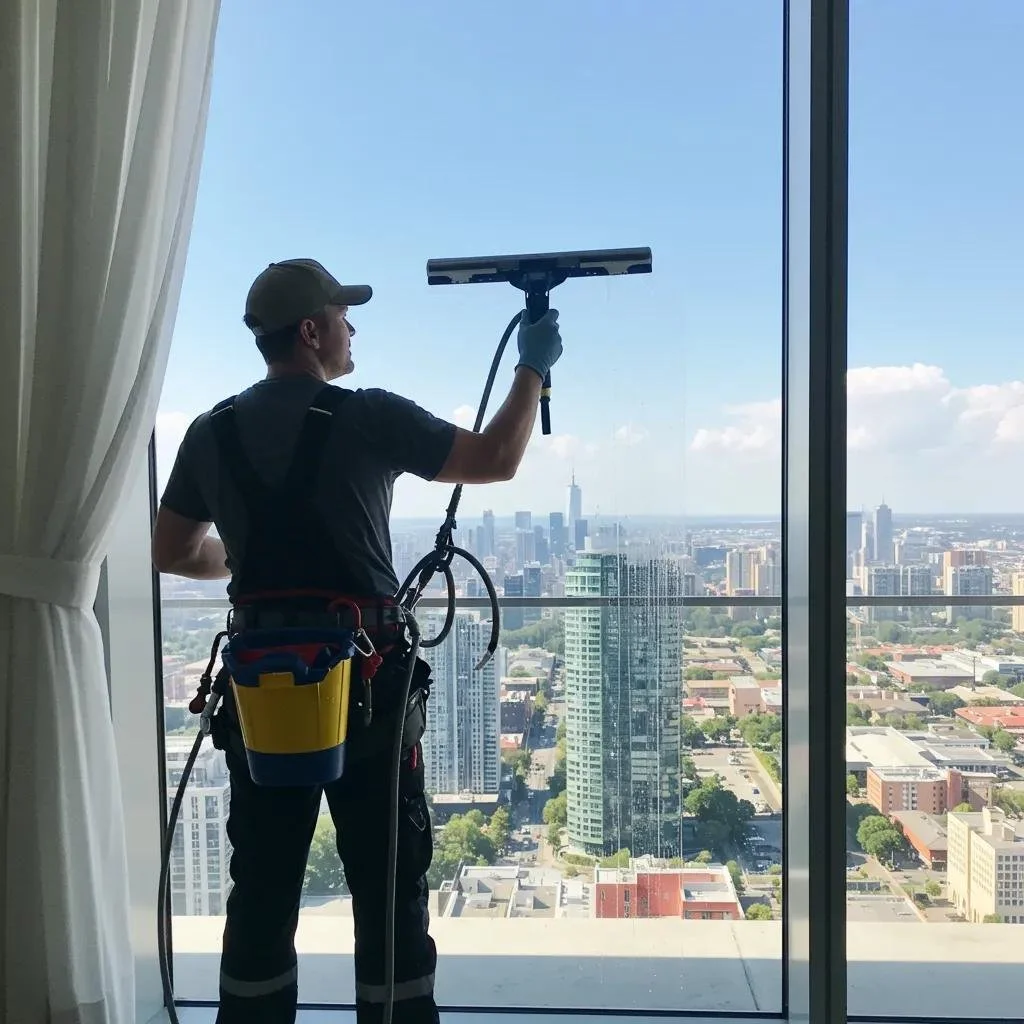Signs Your Home's Windows Need a Professional Cleaning
Windows clouded by dirt and streaks can really dim your home's natural light and comfort, and they often point to bigger maintenance needs. This guide will show you the tell-tale signs your home's windows need cleaning, how often you should schedule it, and why professional services like Pegasus Window Washing are the best choice. You'll learn to spot common dirty window issues, know when an immediate cleaning is a must, and keep things clear between visits from our expert team. We'll also cover how window damage relates to cleaning needs, handy DIY tips, and how gleaming glass boosts your home's curb appeal and value. Follow these tips, and you'll always know when it's time to get your windows sparkling clean.
What Are the Most Common Signs of Dirty Windows?
Dirty windows are simply surfaces covered in dust, streaks, water spots, or even mold, which makes it harder to see out and lets in less light. These build up from particles in the air, mineral deposits from water, and organic matter, all of which cloud up your glass and make it look less appealing. For instance, a thin layer of pollen can scatter sunlight, casting a yellowish haze that dims your rooms. Catching these signs early not only makes your windows look better but also helps prevent them from getting damaged over time.
Over time, windows that aren't cleaned can lead to frame rot and seal issues, so it's important to check them regularly before the dirt really builds up. Knowing these common signs is the first step to making smart cleaning choices and keeping your home healthier.
How Can You Tell If Your Windows Are Too Dirty?
A visible film on your window panes often looks like a hazy sheen that distorts light and blurs your view of the outside. This haze comes from fine dust or road grime sticking to the glass, and it directly cuts down on the amount of daylight coming in. If you notice your windows look less clear or have a persistent grayish tint, even after a quick wipe, it's a sure sign they need a good cleaning.
Checking your windows in direct sunlight regularly will reveal subtle smudges and layers of particles that you might miss in dimmer light. Spotting these early helps prevent buildup that can cause scratches when you try to clean them yourself and protects any special coatings on your glass.
What Are the Effects of Dust, Streaks, and Water Spots on Window Appearance?
Dust, streaks, and water spots each affect how your glass looks in different ways, making your windows look worse and hurting your home's curb appeal. Before we get into cleaning methods, let's look at how these common culprits impact your windows' appearance:
ContaminantWhat It IsHow It LooksDustTiny particles floating in the airCreates a dull, hazy filmStreaksLeftover cleaning solution trailsCauses shiny lines that catch the lightWater SpotsMineral deposits from hard waterLeaves round marks that distort sunlightPollenYellowish-green granulesCauses a murky haze and can scratch the surfaceMold/MildewFungal growth in damp spotsAppears as dark spots and can be a health concern
This breakdown shows that each type of residue needs a specific cleaning approach to get your glass clear again. Knowing what each spot looks like helps you clean more effectively and prevents the same problems from coming back quickly, which can wear down your windows faster.
When Do Mold and Mildew Indicate Immediate Cleaning Is Needed?
Mold and mildew on windows usually start from moisture trapped around the frames and glass edges, and they can cause breathing problems if left untreated. If you see fuzzy black or greenish patches near your window seals, it's crucial to clean them right away to stop spores from spreading and prevent damage to your home. Getting rid of these growths improves your indoor air quality and keeps your window seals in good shape.
Removing mold early with the right cleaning agents can prevent wood rot in your window frames and reduce allergens in your home. Dealing with mold promptly sets the stage for ongoing maintenance that discourages it from returning and keeps your home healthy.
When To Clean House Windows: How Often Should Residential Windows Be Cleaned?
Figuring out how often to clean your home's windows depends on things like how much pollution is around, your local weather, and how important a perfect look is to you. A regular cleaning schedule stops dirt from building up badly and keeps your windows letting in the most light, which also helps with energy efficiency and makes your windows last longer. For example, homes in the suburbs might not need cleanings as often as homes in the city, which deal with exhaust fumes.
Setting up a routine balances how much work you do with how clear you want your windows to be, making sure they stay a great feature of your home instead of something you ignore.
What Is the Recommended Residential Window Cleaning Frequency?
Most pros suggest cleaning exterior windows every three to six months. This prevents a lot of dirt from building up and keeps your glass coatings in good condition. This timeframe allows for regular removal of surface dirt before it can damage the glass or wear out the seals. Interior windows might only need cleaning twice a year, depending on how humid your home is and how much you use them.
Adjusting this schedule based on your area and what you prefer will help keep your windows consistently clear and make each cleaning easier by preventing excessive dirt buildup.
How Do Seasonal Changes Affect Window Cleaning Schedules?
The changing seasons impact how quickly your windows get dirty due to different weather patterns and airborne particles. In the spring, pollen counts are high and can stick to glass, so it's important to clean it off promptly to avoid smearing and stains. Summer storms can leave behind mineral-rich water spots that harden on the glass. Autumn brings falling leaves and dust, creating a layer of organic residue. Winter's freeze-thaw cycles can leave salt and ice residue that can damage frames if not cleaned off quickly.
Adjusting your cleaning routine with the seasons ensures your windows stay clear and functional all year long, matching your maintenance efforts to what the environment demands.
How Does Location Influence How Often Windows Should Be Cleaned?
Homes in urban areas usually need more frequent window cleanings because of traffic pollution, industrial dust, and construction debris that quickly settle on glass. Homes near the coast have to deal with salt spray and sea mist that speed up corrosion and cause spots. Properties in rural areas might get pollen and farm dust, but usually at a slower rate than in cities. Understanding these location-specific factors helps homeowners schedule cleanings proactively, preventing tough buildup that requires heavy scrubbing.
Knowing the environmental challenges in your area ensures your window maintenance helps both with how clear they look and how well they hold up structurally.
What Are the Benefits of Professional Window Cleaning for Your Home?
Professional window cleaning gets rid of stubborn dirt more effectively, helps your window seals last longer, and protects the frames. Our expert technicians at Pegasus Window Washing use special tools and purified water systems that can reach high or hard-to-get-to windows without leaving streaks or causing damage. This precise work improves how much natural light comes into your home and reduces the risk of scratches that often happen with DIY cleaning.
Investing in professional services makes your home look better overall while also cutting down on long-term maintenance costs and keeping your window warranties valid.
How Does Professional Cleaning Improve Window Longevity and Appearance?
Professional cleaning methods remove harmful particles like mineral deposits and bird droppings that can etch into glass over time. Our technicians use purified, deionized water and soft brushes to lift dirt without scratching, preventing tiny abrasions. Restoring your glass to a pristine state increases its resistance to UV rays and helps maintain its insulating properties.
This careful approach not only makes your windows look clearer but also means you won't need to clean them as often, providing lasting visual and functional benefits.
Professional Window Cleaning: Tools and Products
Our cleaning crew are trained on all aspect of window cleaning and using professional tools and high quality cleaning product.
Propose project on window cleaning (Clear and shine), 2022
What Health and Safety Advantages Come With Professional Window Cleaning?
Professional window cleaning removes allergens, mold spores, and pollen that build up on window sills and tracks, improving your indoor air quality. Our trained technicians follow strict safety procedures, using harnesses and secure support systems, which eliminates the risk of falls when cleaning high or multi-story windows. Removing mold and mildew at the source reduces respiratory irritants, and thorough frame cleaning prevents wood rot and insect infestations.
These health and safety benefits contribute to a cleaner, safer home environment and reduce potential risks for homeowners.
How Does Professional Service Save Time Compared to DIY Cleaning?
Professional teams finish window cleaning jobs much faster than most homeowners can, often in a fraction of the time, thanks to efficient processes and advanced equipment. While a DIY cleaning might take up a whole weekend, our professionals can clean multiple windows in just one morning without sacrificing quality. This time savings allows homeowners to focus on other important tasks and avoids the frustration of trial-and-error cleaning.
Using our expert services offers convenience and guarantees consistently excellent results.
How Can You Spot Signs That Indicate Immediate Residential Window Cleaning Is Needed?
Your windows need immediate cleaning when the dirt buildup starts to affect how they work or poses a health risk. Warning signs include a persistent film that won't wipe away easily, visible mold along the edges, and noticeable drafts from damaged seals. Taking care of these issues quickly prevents further damage to both the glass and the frames.
Recognizing these red flags helps homeowners schedule urgent cleaning before small problems turn into expensive repairs.
What Are the Visual Cues That Signal Window Cleaning Is Overdue?
Obvious signs include blurry views of the outside, streaks left behind after rain, and white crusts along the edges of the frames. Stains that you can't remove with regular household cleaners often indicate mineral buildup that needs special treatment. When you notice uneven light patterns or water getting in during storms, it's a clear sign you need a professional inspection and cleaning.
Noticing these visual cues helps maintain your windows' insulation and prevents damage caused by moisture getting into the frames.
How Do Environmental Factors Like Pollution and Pollen Affect Window Cleanliness?
Air pollution from car exhaust and industrial sources leaves a sticky soot on exteriors, which mixes with moisture to create a tough film. Seasonal pollen spreads a fine dust that sticks to glass and sills, encouraging mold growth in damp conditions. Debris blown by the wind can get stuck in window tracks, making it hard to open and close them and trapping moisture.
Understanding how these environmental factors affect your windows helps you choose the right cleaning methods and schedule cleanings proactively.
When Does Window Damage Require Cleaning and Inspection?
Cracked seals, fogging between double-paned windows, or visible rot on the frames mean that cleaning should be done at the same time as a professional inspection and possible repairs. Leaking seals let moisture seep in, causing permanent discoloration of the glass and weakening the structure. Cleaning at this stage removes surface dirt and reveals the full extent of the damage, allowing for timely fixes.
Combining cleaning with an assessment ensures your windows remain in good condition and efficient for the long term.
How To Maintain Clean Windows Between Professional Cleanings?
Regular upkeep between professional cleanings helps keep your windows looking great and makes each full cleaning session easier. Simple tasks like dusting and spot-wiping prevent dirt from building up, keeping your views clear and letting in plenty of light. These habits support the cleaning schedule you've set.
By adding simple maintenance tasks to your regular household chores, you can reduce how often you need professional services and keep your home looking its best at all times.
What Are Easy DIY Tips for Keeping Windows Cleaner Longer?
Start by using a microfiber cloth to dust the frames and glass weekly, removing loose particles before they can smear. Spraying a mild solution of vinegar and water and then squeegeeing immediately helps prevent streaks. Cleaning the screens and tracks regularly ensures good airflow and stops dirt from getting onto the glass surfaces.
Following these steps reduces the need for harsh scrubbing and keeps your windows clear between professional treatments.
How Often Should You Wipe Down Windows to Prevent Dirt Build-Up?
Wiping down interior window panes with a dry cloth every two weeks removes household dust and fingerprints, keeping your views clear. Exterior window sills and frames benefit from a monthly rinse with low-pressure water to wash away settled dirt and organic debris. Establishing this routine prevents stubborn dirt from accumulating and makes full cleanings much simpler.
Consistent, light cleaning maintains the quality of your glass and postpones the need for intensive maintenance.
Which Cleaning Products Are Safe and Effective for Residential Windows?
Choosing sprays that are pH-neutral and ammonia-free helps protect sealants and window tints. Products with gentle cleaning agents lift dirt without scratching glass coatings. For exterior frames, mild detergent mixed with water can remove surface dirt without damaging paint or finishes.
Selecting the right products ensures safe and effective maintenance that protects both the glass and the surrounding materials.
What Are the Signs of Window Damage That Require Cleaning and Repair?
Persistent dirt and trapped moisture can speed up frame decay, glass etching, and seal failure, indicating that cleaning and repairs should be done together. If you notice wood swelling at the sill, rust stains on metal frames, or fogging inside the panes, it's time to address both surface cleaning and structural fixes. Tackling these issues at the same time helps maintain your windows' performance and appearance.
Catching these signs of damage early prevents costly renovations and keeps your windows energy-efficient.
How Can Dirt and Grime Lead to Window Frame and Glass Damage?
Gritty debris stuck in window tracks can scratch frame finishes as the window is operated, wearing away protective coatings. Hard water deposits gradually etch glass surfaces, creating tiny cracks that scatter light and weaken the glass. Organic material against wood frames can lead to rot and insect problems, making repairs more extensive.
Regularly removing these contaminants stops damage from getting worse and extends the life of your windows.
When Should You Combine Cleaning With Window Repairs?
If you find broken seals, visible fogging, or warped frame sections while cleaning, schedule professional repairs along with your wash service. Fixing issues like worn weatherstripping or resealing glass at the same time prevents repeated disruptions and ensures a complete restoration. Coordinating these tasks makes the service more efficient and delivers lasting results.
Combining cleaning with necessary repairs protects both the look and the functionality of your windows.
How Does Regular Window Cleaning Enhance Your Home’s Curb Appeal and Value?
Consistently clean windows make a property look well-cared-for, increasing natural light, improving the interior atmosphere, and boosting its perceived value. Sparkling, streak-free glass highlights architectural details and creates a positive impression on visitors or potential buyers. Homes with spotless windows often sell faster and for a higher price because of the immediate impact of better light and clarity.
Keeping your windows sparkling is a cost-effective way to improve your home's overall appearance and marketability.
What Impact Does Clean Windows Have on Natural Light and Interior Ambiance?
Clean windows allow maximum daylight to enter, reducing the need for artificial lighting and creating a welcoming atmosphere. Clear glass ensures light spreads evenly, highlighting your interior decor and improving your mood. More natural light can also help plants grow and lower energy bills by using free daylight.
This improved ambiance makes your home more comfortable and can even boost well-being by increasing exposure to sunlight.
How Does Window Cleaning Affect Property Value and Buyer Impressions?
Well-maintained windows signal that a homeowner pays attention to detail and takes care of the property's structure, qualities that real estate appraisers highly value. Buyers see clear, undamaged glass as a sign of good maintenance, which often leads to higher offers. By showcasing unobstructed views and bright interiors, clean windows can make your home stand out in competitive markets and help it sell faster.
Investing in regular cleaning provides measurable returns in perceived value and how ready your home is to sell.
Clean windows don't just make your daily life better; they also show your commitment to taking care of your property. Scheduling regular professional cleanings along with your own DIY maintenance ensures your windows remain a standout feature of your home, not something you've neglected. By watching for signs that your home's windows need cleaning and acting quickly, you'll protect your investment, boost your curb appeal, and enjoy bright, clear living spaces all year long.



